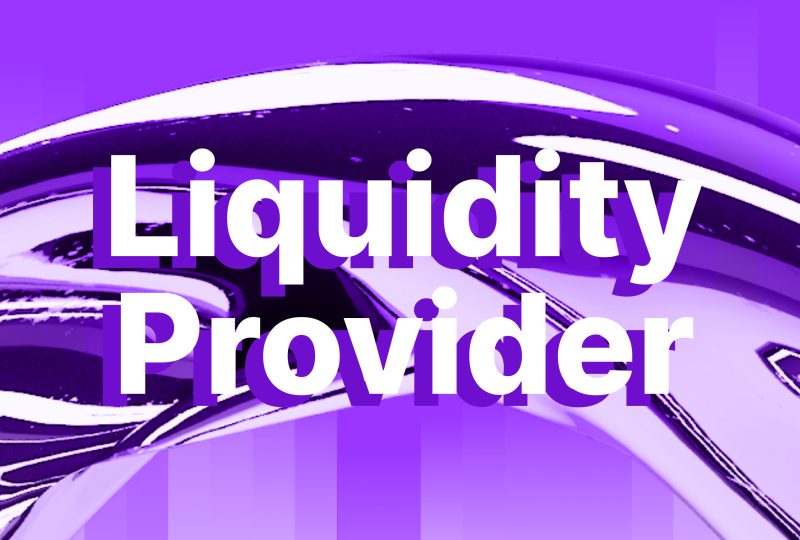All You Need to Know About BTC Accelerator
Sep 01, 2024

Today, 15 years after its first launch, Bitcoin remains the leading cryptocurrency in the crypto market, with a total capitalization of approximately $1,150,000,000,000 as of September 2024. At the same time, the network of this coin processes over 600,000 transactions daily in the context of trading and other operations related to its purchase or sale.
Experiencing bell loads and dynamic changes in the size of the commission on processed transactions, the Bitcoin network is the busiest of all existing networks, where today, special BTC accelerators are used to optimize the processing of on-net transactions.
This article will tell you what a BTC accelerator is, the principles behind its work, and the advantages its use provides.
Key Takeaways
- BTC accelerators are paramount in expediting Bitcoin transactions that may experience delays in the mempool, often caused by insufficient transaction fees or network congestion.
- BTC accelerators can be accessed through paid and free options, with paid services typically delivering more dependable acceleration than their free counterparts, offering a budget-friendly alternative.
- BTC accelerators can greatly enhance confirmation speeds and facilitate prompt payments, breaking down the possibility of network overload.
What Is a BTC Accelerator?
A Bitcoin accelerator is a specialized service aimed at expediting the confirmation of Bitcoin transactions that may be experiencing delays or are stuck within the blockchain due to insufficient transaction fees. When a Bitcoin transaction is initiated, it requires validation by miners on the network before it can be fully executed. Miners tend to prioritize transactions with higher fees, which can result in prolonged waiting times for those with lower fees.
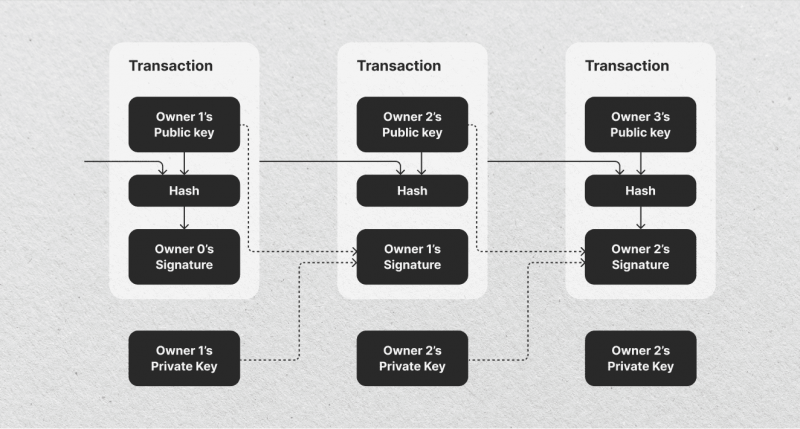
The operation of a Bitcoin accelerator involves either re-broadcasting the transaction across the Bitcoin network to enhance its visibility to miners or collaborating with mining pools to ensure the transaction is prioritized, sometimes involving an additional fee.
These services are highly effective and easy to operate, making them accessible to many users. They are particularly beneficial when timely confirmation is paramount and waiting for the standard processing time is not an option.
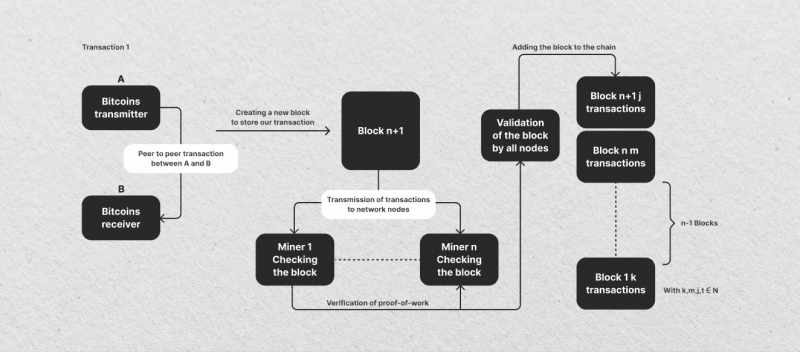
Utilizing a Bitcoin accelerator can significantly reduce the time it takes for a transaction to be confirmed, providing users with a more efficient way to manage their Bitcoin transfers. This service is especially advantageous in high-traffic periods when network congestion can lead to delays.
By leveraging the capabilities of an accelerator, users can ensure that their transactions are processed more swiftly, thereby enhancing their overall experience in the Bitcoin ecosystem.
Fast Fact
The duration of Bitcoin transactions generally ranges from 10 to 60 minutes, with an average completion time of approximately 11 minutes.
How BTC Accelerators Operate
BTC accelerators play a crucial role in the Bitcoin ecosystem by addressing the issue of delayed transactions, particularly those stuck in the mempool due to insufficient transaction fees. When users initiate a Bitcoin transaction, it is broadcasted to the network and enters the mempool, where miners await confirmation.
However, if the transaction fee attached to the transaction is too low compared to others in the mempool, it may remain unconfirmed for an extended period, leading to aggravation for the sender.
To mitigate this problem, BTC accelerators employ several key mechanisms that enhance the likelihood of these transactions being processed more quickly.
Re-Broadcasting the Transaction
Re-broadcasting a transaction involves BTC accelerators sending unconfirmed transactions back into the Bitcoin network on several occasions. This strategy aims to enhance the likelihood of the transaction being noticed by miners, particularly when the network experiences lower levels of congestion.
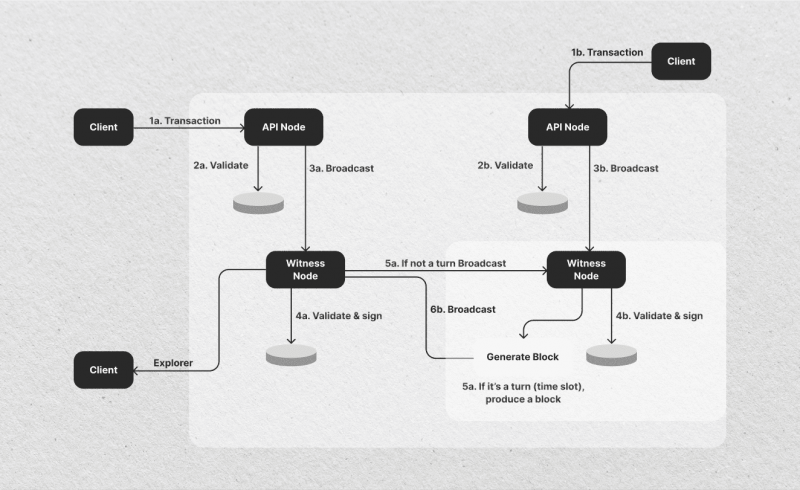
Certain accelerators provide this re-broadcasting service at no cost, catering to users who are willing to wait but seek to improve the prominence of their transactions. This approach allows users to increase the chances of processing their transactions without incurring additional expenses.
Priority Mining Services
Priority mining services often establish strategic partnerships with particular mining pools to enhance the efficiency and speed of Bitcoin transaction processing. These agreements enable designated BTC accelerators to prioritize the transactions submitted through their platform.
As a result, transactions that utilize these accelerators are given preferential treatment, increasing the likelihood that they will be included in the next block mined or within a predetermined number of subsequent blocks. This prioritization is particularly beneficial during periods of high network congestion, where transaction delays can occur due to the limited capacity of the blockchain.
In most cases, utilizing priority mining services comes with associated fees. Users must pay a specific charge to expedite the confirmation of their transactions. This fee structure incentivizes miners to prioritize certain transactions over others, making it a crucial option for individuals and businesses that need timely processing for their Bitcoin transactions.
The importance of these services becomes particularly evident during times of high demand on the network, such as during market surges or significant events that drive increased transaction volume.
Child-Pays-for-Parent (CPFP)
The Child-Pays-for-Parent (CPFP) mechanism addresses the issue of transactions that become stalled due to insufficient fees. In this scenario, a new transaction, referred to as the “child,” is generated to utilize the output of the unconfirmed transaction, known as the “parent.” Incorporating a higher transaction fee in the child transaction encourages miners to process both the child and parent transactions simultaneously.
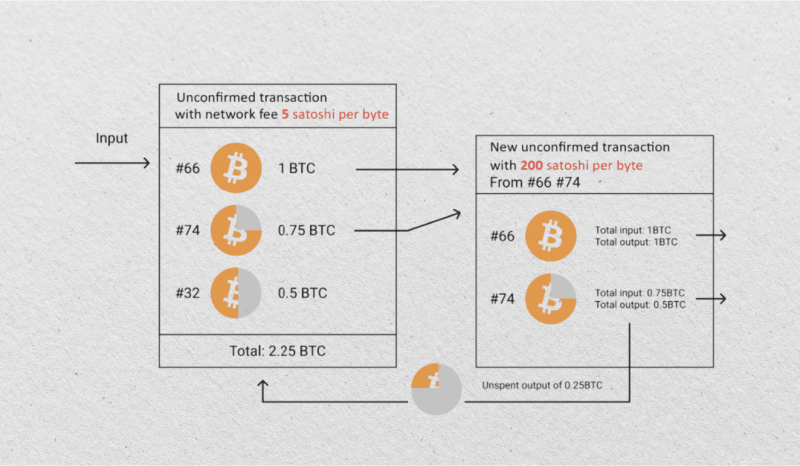
Certain sophisticated Bitcoin accelerators leverage the CPFP strategy to expedite the confirmation of transactions experiencing delays. This method effectively motivates miners to prioritize the confirmation of both transactions by offering an enhanced fee structure, facilitating a more efficient resolution for otherwise stuck transactions in the network.
Replace-by-Fee (RBF)
Replace-by-Fee (RBF) is a mechanism that allows users to substitute an unconfirmed transaction with a new one that carries a higher transaction fee. The original transaction becomes invalid when this updated transaction is broadcasted to the network, ensuring the new one is prioritized for confirmation.
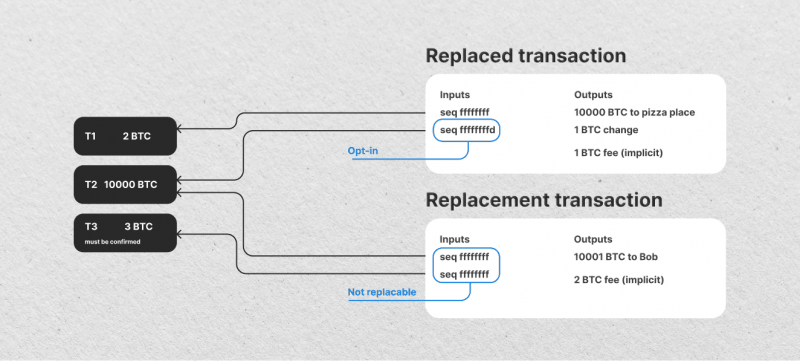
RBF can be implemented either automatically or manually, depending on the wallet’s capabilities. Certain wallets have built-in support for RBF, enabling users to adjust the fee themselves. Additionally, Bitcoin accelerators can facilitate this process by automatically creating and sending the replacement transaction to the network.
Mempool Oversight
Certain Bitcoin accelerators actively observe the mempool and the prevailing network conditions. By leveraging this data, they strategically time the re-broadcasting of transactions, optimizing the chances of achieving confirmation at peak times.
These services can modify their approach in response to real-time network congestion. They may alternate between re-broadcasting transactions and employing the described Child Pays for Parent (CPFP) or Replace-by-Fee (RBF) techniques as circumstances dictate.
Direct Integration with Wallets
Some Bitcoin wallets offer integrated BTC accelerator services, enabling users to enhance transaction speeds directly within the wallet environment. This functionality streamlines the user experience, allowing for quicker confirmations without the necessity of navigating away from the wallet interface.
Within these wallets, users may encounter “speed up” or “accelerate” features for their transactions. Selecting these options activates the accelerator service, which expedites the transaction process on the user’s behalf, simplifying the overall experience.
Key Advantages of Using Bitcoin Transaction Accelerators
BTC accelerators in the current structure of blockchain systems play an important role in maintaining a stable flow of transactions, eliminating delays in the network, and relieving the increased load on it during the volatility of the crypto market. All this is achieved due to certain advantages that each accelerator has expressed in the following:

Faster Confirmation Times
When the Bitcoin network experiences increased activity, such as during market surges or significant events, the volume of transactions can lead to longer wait times for confirmations.
Each transaction must be included in a block, and miners prioritize transactions based on the fees attached to them. As a result, transactions with lower fees may experience delays, leaving users frustrated and uncertain about the status of their funds.
Transaction accelerators address this issue by allowing users to pay an additional fee to prioritise their transactions. These services work by broadcasting the transaction to miners or utilizing their mining pools to include the transaction in the next block.
This can benefit users who must complete transactions quickly, such as trading or time-sensitive payments.
Increased Transaction Reliability
By employing a BTC accelerator, you can effectively boost the priority of the transaction, allowing miners to confirm it more quickly. This proactive measure not only enhances the dependability of the transactions but also provides peace of mind, knowing that the funds are moving through the network without unnecessary hold-ups.
In a fast-paced digital economy, where timing can be crucial, ensuring that your transactions are processed promptly can significantly impact your overall experience and success in using Bitcoin.
Cost Efficiency
Certain transaction accelerators are designed to optimize the speed of transactions without necessitating an increase in the associated transaction fees. Users can benefit from faster processing times without incurring additional costs. As a result, this approach can be more economical compared to the alternative of preemptively choosing a higher transaction fee to ensure quicker processing.
By leveraging these accelerators, individuals and businesses can balance speed and cost, ultimately leading to more efficient financial operations.
User Convenience
Accelerators offer a highly accessible and user-friendly solution for individuals who may lack a deep understanding of the intricate details surrounding transaction fees and the various dynamics of blockchain networks. These tools are designed to simplify the process of conducting transactions, making it easier for users to navigate the often confusing landscape of cryptocurrency transactions.
The concept of transaction fees can be daunting for many individuals, especially those new to cryptocurrencies. Different networks have varying fee structures, and understanding how these fees fluctuate based on network congestion and demand can be overwhelming. Accelerators alleviate this burden by providing a straightforward interface that allows users to prioritize their transactions and expedite processing times with minimal effort.
Plus, accelerators often come equipped with features that automatically adjust the recommended fees based on real-time network conditions, ensuring that users can achieve faster transaction confirmations without constantly monitoring the market. This saves time and reduces the likelihood of users making costly mistakes due to a lack of knowledge about optimal fee settings.
Enhanced Transaction Security
Implementing Bitcoin accelerators significantly enhances the security of transactions by expediting the confirmation process. In the world of cryptocurrency, transaction confirmations are crucial as they validate the legitimacy of a transaction and prevent fraudulent activities, such as double-spending.
Moreover, the increased speed of confirmations provided by BTC accelerators can increase user confidence in the system. As users experience faster transaction times and reduced risk of fraud, they are more likely to engage in transactions, fostering a more robust and secure ecosystem.
Support for Low-Fee Transactions
In the world of cryptocurrency, transaction fees can vary significantly based on network congestion and the urgency of the transaction. While some users may opt to submit their transactions with minimal fees to save costs, this can lead to delays in confirmation, especially during peak times when the network is busy.
By utilizing their resources and connections within the network, accelerators can prioritise these transactions, ensuring they are processed more quickly. This not only alleviates the frustration of prolonged waiting times for users but also significantly boosts the efficiency of the blockchain network, instilling a sense of confidence in its operations.
Conclusion
BTC accelerator is a multifunctional tool that offers state-of-the-art technology to work with optimizing the speed of transaction processing within the network and creates optimal conditions for monitoring and controlling key network bandwidth parameters to meet the steadily increasing demand for trading the first cryptocurrency within different markets.
FAQ
What is a BTC Accelerator?
A BTC accelerator is a service that helps speed up Bitcoin transactions that are delayed or stuck due to low transaction fees or network congestion.
How does a BTC accelerator work?
BTC accelerator work by rebroadcasting your transaction to the Bitcoin network or by prioritising it with miners, ensuring it gets confirmed faster.
When should I use a BTC accelerator?
Use a BTC accelerator when your Bitcoin transaction is unconfirmed for an extended period, especially if it’s stuck in the mempool due to a low fee.
Are BTC Accelerators free?
Some BTC accelerators are free, while others charge a fee for their services, especially for higher priority or larger transactions.
Do BTC Accelerators guarantee faster transactions?
While BTC accelerators significantly increase the chances of a faster confirmation, they cannot guarantee it, especially during times of severe network congestion.
Can I use a BTC Accelerator for any transaction?
Yes, most BTC accelerators can be used for any Bitcoin transaction, but their effectiveness may differ depending on the service and the transaction conditions.

